
These days Australians of all ages are taking extended holidays everywhere with the midlife "year off" emerging as a hot new trend, writes David McGonigal.
Once upon a time the gap year was the domain of the post school, pre-job (or pre-uni) set who convinced their parents that after 12 years of institutional learning they needed to discover the world and maybe themselves.
But these days it's become the domain of anyone of any age who manages to grab that elusive break between jobs or relationships - or just because they can.
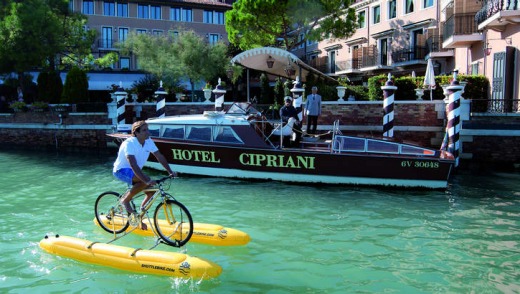
While the gap year may have begun as young English aristocrats took the Grand Tour to Venice, these days it's dominated by Australians of all ages on extended holidays everywhere. Of course, a gap year is quite different for adults between jobs and students.
Pulling beers in a London pub or being a ski-lift attendant at Whistler in Canada is fine when you're just out of school or uni. But it may not suit someone who already has a career.
A retrenched executive with a good redundancy payout (don't blow the windfall all at once) is more likely to be found in an Orient-Express hotel or a rented chateaux in the Loire than at the late lamented Walkabout pub in Shepherd's Bush.
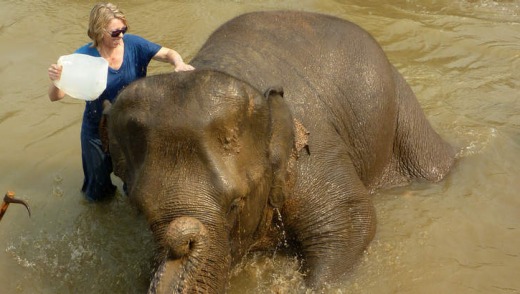
Whatever the case, the concept of a gap year is catching on. Student Flights and Travel Associates, part of the Flight Centre group, say for many, a gap year may be less than six months and for others 12 months may not be long enough. In the year to September 2013, Flight Centre reports a 31 per cent increase in student flights with no return date and a 29 per cent increase for open-ended adult (non-student) bookings. While there was a corresponding reduction in student flights in the six to 12-month range, the number of long holidays taken by the adults group grew, except for a minor reduction in 10 to 12-month holidays.
So, where do we go? Australians have clear favourites, with New Zealand, Indonesia, United States, Britain and Thailand the most popular destinations. Travel Associates reports that for the more mature gap year traveller, there's strong growth to Britain but also to China, Italy and particularly France.
The strong areas of student travel growth are Britain, France and New Zealand.

When retirees set off on an extended holiday - or "golden gap year" as it's now sometimes known - it is presumed there's sufficient funds to support the trip without the need to find a job along the way. And the need to return home will be for family (not work or study) commitments.
Retirement offers great freedom: the kids are gone; the job is finished, forever; and you can finally relax and explore without restraint.
For those keen to live in another culture with the comforts of home, consider a house-swap. It may be worth holding off downsizing as an Australian family home may turn out to be a desirable swap for a funky apartment in Paris, a farmhouse in the Loire, a cottage in County Cork, or a home in the Greek Islands. There are many organisations that do house swap match-making though, of course, you need to check credentials.
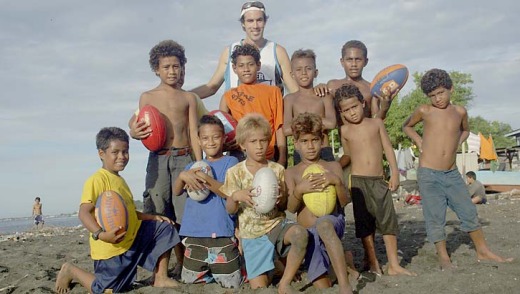
In Canada, they are called "Snowbirds" - retirees who spend summer at home then flee to somewhere warmer in winter. Some canny Australians do that too - it becomes a "gap life".
If you have connections in your escape destination it may be easiest to simply buy a house. Hitting the road may hold high appeal for the explorer at heart. A buy-back motorhome provides flexibility and a home. Or don't sell it but rather store it while you're in Australia.
If you love boats and are reasonably active, consider buying a canal boat. A second-hand boat is not expensive and France, England, Holland and Germany have exceptional canal systems. Life on a canal can bring surprising rewards as friendships develop when life unfolds at 8km/h.
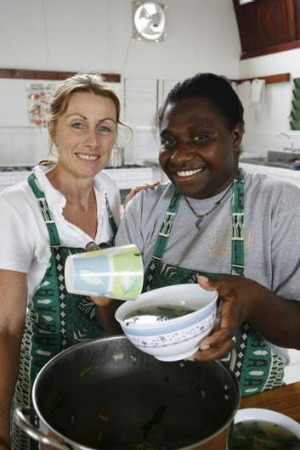
Whatever your age group and whatever option you take, the benefits of a gap year are being increasingly recognised.
A recent Sydney University study found a gap year between school and university led to students achieving better results at university. The lead author of the study suggested that a gap year may improve decision-making, self direction and organisation and, perhaps confidence. A gap year (or two) between jobs can also be a positive if it reflects your interests and values - or it may simply suggest there was a significant payout in, say, the form of a redundancy. That's the view of Nancy Hromin, of corporate development company Culture Zone, who also recommends that you don't leave so quickly after being retrenched that it looks like running away.
In any case, when you return you can state that you're well refreshed, ready for new challenges and will be the envy of headhunters and colleagues. A gap year can be the defining journey of your life. It's almost certain to leave you with new friends and a wealth of experiences. It may also leave you focused for study or a new career. And, later in life, when friends say "I wish I'd ..." you can reply "I did".
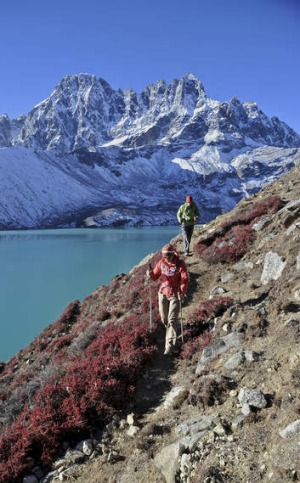
GO WILD
If you're young and want to stay on the road for a long time on a limited budget, Asia is the place to be. Whether it's discovering the artistic heritage of Bali, trekking the Nepalese foothills, meeting the hill tribes of Thailand or viewing dawn over Angkor Wat there's a richness to life here. And it's a well trodden trail.
For those with deeper pockets, the greatest wildlife experiences are to be found in Africa. The bush looks a lot like Australia's until a giraffe or a lion strides out of the forest or you notice the baboons chattering in the trees. See wilderness-safaris.com
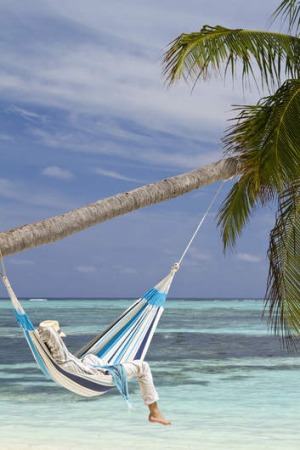
After years in the corporate jungle it's refreshing to learn something different. Thailand's Anantara Golden Triangle Elephant Camp offers an elephant mahout training course where you have your own elephant to command, ride and bathe in a interactive experience with strong conservation undertones. See anantara.com
TRANSPORT YOURSELF
For many, travel freedom is having your own transport overseas. The ultimate indulgence is taking your own car or motorcycle overseas but that requires a long dance with officialdom. Buying or renting a campervan or motorhome in Europe or North America solves the joint problems of transport and accommodation and certainly provides a theme to the journey.
Fit travellers may opt for a hybrid option and pack a bicycle that can be taken on trains, planes or buses. Then you're mobile when you arrive.
Not only are many Australians taking extended holidays in France, many are doing it on self-skippered canal boats along the Canal du Midi between Toulouse and the Mediterranean. With dappled sunlight through the plane trees and canalside cafes and bakeries, this is the good life. See outdoortravel.com.au
WORK OR STUDY
There are several agencies in Australia that will help find young travellers a position in roles as diverse as volunteering in a Cambodian orphanage, assisting in an American summer camp or getting a job for the Whistler ski season. However, it's worth investigating closely as, for each of these, locals tell us that it may be achieved more cheaply or to better effect by checking on, and dealing with, foreign agencies directly.
If you are between 18 and 30 and interested in volunteering, a great place to start is the Australian Government's Australian Youth Ambassadors for Development (AYAD) program at ayad.com.au. It operates in countries in Asia, the Pacific and Africa and you need to bring a relevant skill to each program. There are four-day briefing workshops held in several cities around Australia each year and your costs are covered to attend. The next ones are in February.
If you want to enhance your job prospects while travelling, taking a course in teaching English as a foreign language would be a great start. If you are between 18 and 30 years of age there are several countries that will allow you to stay and work for up to 12 months. This includes not just Commonwealth countries but others in Europe, South America and Asia. There are various requirements so start at immi.gov.au/visitors/working-holiday/australians-overseas.
A gap year can also be the chance to achieve a lifetime ambition whether that's learning Tuscan cooking in Florence, mastering French in Paris or studying Japanese culture in Hokkaido.
THE QUEST FACTOR
There are the long distance runners and the trans-continental horse riders. Others trek the entire Himalayas or the Great Dividing Range or drive a campervan the length of Africa. Then there are those who set off to sail around the world - or row across the Tasman or parasail across Greenland or paddle a kayak around South Georgia or ice trek to the Pole.
There are some wonderful long walks from Nepal's Annapurna Circuit to the Appalachian Trail in the US and the West Coast Trail on Vancouver Island. If there is a quest du jour it's the Camino de Santiago, the 800-kilometre walking (or cycling) route across northern Spain. For many, it's a pilgrimage to the Cathedral of Santiago de Compostela in Galicia but others find it enlightening in a secular way or just a nice walk.
ABOUT THE WRITER
David McGonigal, who between trips lives in Sydney, has enjoyed a gap life travelling the world as a writer, guide and a lecturer on tours to Antarctica.
BEFORE YOU GO: GAP YEAR CHECKLIST
Travel insurance
It would be reckless to fly out without travel insurance, but even though there are many annual policies, most only cover you for three consecutive months overseas.
Inoculations
For many parts of the world you'll need inoculations and some require a series of injections over months. So start early and check smarttraveller.gov.au and make an appointment with your doctor.
Return ticket
Of course, you'll need to book a flight (or ship) to leave the country. But give some thought to buying a return ticket, too (with flexibility?) as many immigration officers will ask you to prove you are planning or returning home.
Money
It's now easy to extract money from your bank or credit union account from an ATM just about anywhere in the world. But some charge a lot in upfront fees and exchange rates. Do your homework and have money in at least two accounts, just in case one fails.
Driving licences
If you are planning on driving overseas, it's not just enough to make sure your licence won't expire. It's a good idea to carry an international driver's licence. While renting a car long term is expensive and buying a car can run into bureaucracy, in Europe there are some great deals on leasing from companies such as renaulteurodrive.com.au.
Mobile options
Using your Australian provider's SIM in your mobile phone is convenient but expensive. You can find much cheaper Australian options or you can buy cheap SIM cards in the countries you travel through. If you are also using your smartphone as your camera and email device, accept you may lose it or have it stolen so make sure you regularly back-up to the cloud.
Things to do
Things to do before you leave include storing your stuff, writing a will or giving a power of attorney, setting up emergency contacts and renting out your house, flat or room.